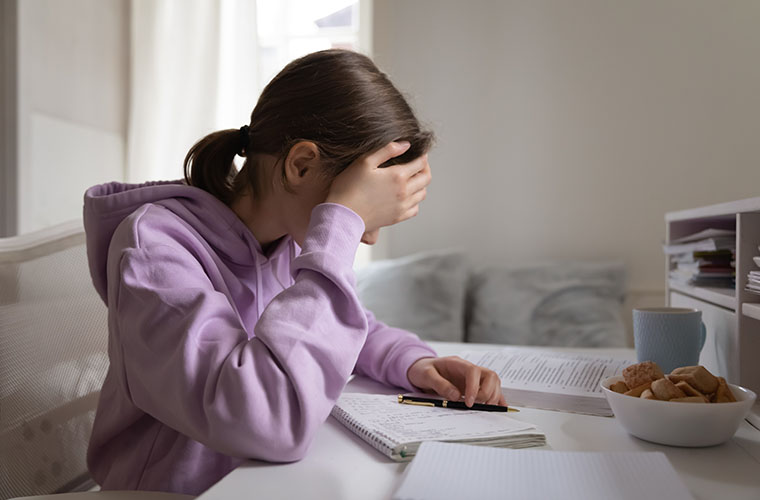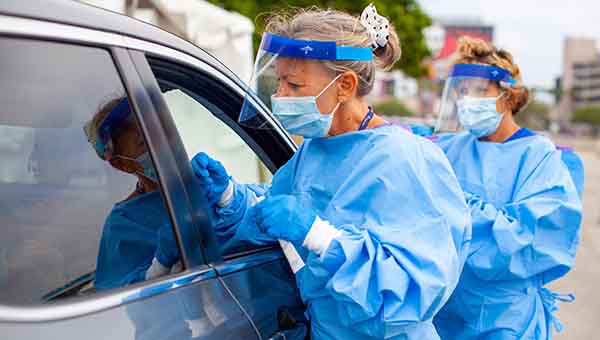Helping Teens Manage Stress

Like many adults, millions of teenagers across the country experience chronic stress.
An ongoing pandemic, social unrest and other conflicts have impacted teenagers’ overall mental health.
That’s why Dr. Brandon DeLiberato, child and adolescent psychiatrist and regional medical director for BayCare Behavioral Health, provides tips for parents and teenagers on how to identify signs of stress and ways to manage it.
Why Teens Stress
As children get older and transition into teens, their sources of stress increase inside and outside the home. Dr. DeLiberato says problems at home, school and other external environments can trigger a great deal of stress for teenagers.
“Teens who experience loss, divorce or change at home go through a lot of stress and anxiety, affecting their overall physical and mental health,” says Dr. DeLiberato. “Change of schools, home or environment, bullying, peer pressure and worrying about not making friends can trigger stress symptoms.”
Social issues such as gun violence, school shootings and sexual harassment can impact teenagers and their mental health.
Signs and Symptoms
Stress symptoms can appear in many ways among teenagers. Some signs include anger, trouble sleeping, sadness, headaches, stomach aches, changes in behavior or eating habits, tiredness, display of doubts and insecurities and sudden drop of grades in school.
Dr. DeLiberato says if you think your teenager is repeatedly experiencing any of these symptoms, you should adopt some daily healthy habits at home or get professional help.
Treatment
According to Dr. DeLiberato, there are many ways teenagers can manage stress including getting enough sleep and exercise, taking regular walks, eating well, having fun with friends and loved ones and discussing their feelings regularly.
Getting enough sleep and staying off digital devices before falling asleep is highly important. “Teens need nine to 12 hours of sleep every night,” says Dr. DeLiberato. “Sleep helps them destress and get the rest they need to be productive for the day.”
It’s important that teens stay physically active especially when they show symptoms of stress. Dr. DeLiberato recommends at least 60 minutes of exercise or physical activity each day. “Taking a walk or spending time in nature is also really important for teens,” he says. “These daily activities will help reduce excessive stress and improve overall wellbeing,”
Dr. DeLiberato says always make time for fun activities with your teenager. Like adults, they enjoy doing things that bring them joy. Make sure you take them on a trip, visit a museum, host a sleepover with friends or participate in a sporting activity, he says. This will help provide balance in their lives.
They should also improve their diet. Dr. DeLiberato says make sure your teen is eating enough vegetables, legumes, whole grains, fish, fruit and nuts. It’s also important to eat slowly, have smaller meals and limit food intake after dark.
If your teenager is feeling stressed, they should talk about it with their family members or people they trust. They can also talk to a mental health professional and express what they’re feeling in a safe space.
Unfortunately, Dr. DeLiberato says discomfort and difficult situations can happen, but those challenges also can be learning experiences for teens in a way that helps them prepare to overcome difficulties when they grow older.
Getting Professional Help
If your teenager continues to experience high levels of stress that disrupts their productivity and day-to-day activities, talk to a mental health professional. This can help them address those issues and establish mental health habits.
To speak to an adolescent psychiatrist at BayCare Behavioral Health, click here.


